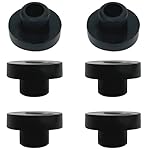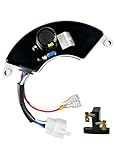Buying a Generator in Georgia

* This site contains affiliate links for which we may be compensated.

* This site contains affiliate links for which we may be compensated.
Need backup power in Georgia? Here’s a down-to-earth guide to voltages, brands, the best models, and reputable shops—plus handy add-ons like an inverter generator or a safe transfer switch kit.
Single-Phase Voltage: 220 V / Three-Phase Voltage: 380 V / Frequency (Hertz): 50 Hz / # of Wires: 3 / Plug Type(s): Type C, Type F
What are you looking for?
- Generator Brands/Models in Georgia
- Where to Buy Generators in Georgia
- Georgia Generator Guide & FAQs
Generator Brands for Sale in Georgia
Georgia’s market has a mix of portable gasoline inverters for households, plus robust diesel gensets for businesses and remote sites.
- Honda: Known for quiet portable inverters and small home backup sets. Price range: ~$1,000–$3,000. Browse Honda inverter generators.
- Yamaha: Reliable, lightweight, and quiet inverters ideal for apartments or offices. Typically $900–$2,500. Check Yamaha EF series.
- Kipor: Affordable portable units with inverter options; often priced below $1,000.
- Kubota: Diesel gensets for longer runtime and durability; quote-based for 5–20 kVA systems.
- Cummins: Industrial-grade standby and prime power solutions for homes, offices, and businesses; price by quote.
- Kohler: Premium standby systems with advanced controls and ATS compatibility; pricing on request.
- Pramac: Versatile range of portable and diesel gensets, good balance of cost and durability.
Best Generator Models in Georgia
“Best” depends on whether you’re running a small household or a larger site. Pair any unit with proper accessories like a surge protector and heavy-duty cords.
- Honda EU22i / EU30is: Quiet inverter models, perfect for sensitive electronics. ~2–3 kW. Price: $1,200–$3,000.
- Yamaha EF2200iS / EF3000iSE: Balanced runtime, portability, and noise levels. ~2–3 kW. $1,000–$2,800.
- Kipor IG3000: Budget-friendly inverter model, ~3 kW output. Usually below $1,000.
- Kubota GL7000: Diesel genset with long runtime, ~7 kVA. Quote-based.
- Cummins C30–C60: Heavy-duty standby diesel units for businesses or large homes; 30–60 kVA. Quote-based.
- Kohler 20RESCL: Reliable standby system with ATS integration, ~20 kVA. Quote-based.
Where to Buy Generators in Georgia
Buy from authorized dealers to ensure warranty, service, and access to spare parts. Accessories like ATS kits, weatherproof covers, and CO alarms are easy to find online.
Generator Service Ltd
- 5 David Agmashenebeli Ave, Tbilisi, Georgia
- Contact: +995 322 123 456 · info@generatorservice.ge
- Hours: Mon–Fri 9:00 AM – 6:00 PM
Powerline Georgia
- Chavchavadze Ave 42, Tbilisi, Georgia
- Contact: +995 599 123 789 · sales@powerline.ge
- Hours: Mon–Sat 10:00 AM – 6:00 PM
Kubota Georgia Distributor
- Guramishvili Ave 89, Tbilisi, Georgia
- Contact: +995 577 888 900
- Hours: Mon–Fri 9:00 AM – 5:30 PM
Energy Solutions Caucasus
- Rustaveli Ave 120, Tbilisi, Georgia
- Contact: +995 322 345 678 · support@esc.ge
- Hours: Mon–Fri 9:00 AM – 6:00 PM
Diesel Power Systems Georgia
- Kakheti Hwy 23, Tbilisi, Georgia
- Contact: +995 322 987 654 · info@dieselpower.ge
- Hours: Mon–Sat 9:30 AM – 6:00 PM
Honda Power Equipment Dealer
- Tsereteli Ave 65, Tbilisi, Georgia
- Contact: +995 595 222 333
- Hours: Mon–Fri 10:00 AM – 5:30 PM
Cummins Georgia
- Vazha-Pshavela Ave 88, Tbilisi, Georgia
- Contact: +995 322 456 789 · cummins@georgia.com
- Hours: Mon–Fri 9:00 AM – 6:00 PM
Kohler Dealer Georgia
- Ketevan Tsamebuli Ave 56, Tbilisi, Georgia
- Contact: +995 599 777 111
- Hours: Mon–Fri 9:00 AM – 5:00 PM
Georgia Generator Buying Guide and Tips
- Right size, right circuit: Calculate loads (fridge, lights, router, small AC, pumps). Households often need 2–3 kW inverters; villas, farms, or businesses may need 5–20+ kVA diesel.
- Noise matters: Inverter generators run at 50–60 dB @ 7 m (conversation level). Open-frame petrol can be 70–85 dB. Check local building/apartment noise rules.
- Fuel choice: Petrol inverters are portable and affordable for short outages. Diesel gensets are more efficient and reliable for longer use or rural setups.
- Electrical safety: Use a certified electrician for installation. Always use ATS/changeover switches—never backfeed the grid.
- Power quality: Protect electronics by choosing pure-sine inverter generators or AVR-equipped sets + surge protection.
- Cords & outlets: Use 220 V-rated cords with proper grounding. Keep them dry and short. Consider RCD-protected plugs.
- Maintenance: Do the first oil change early (5–20 hours), then follow intervals. Stock spare filters, plugs, and oil. Test monthly under load.
- Weather & storage: Georgia’s seasons vary—keep units sheltered from snow/rain and ensure ventilation. A running cover helps in bad weather.
Buying Generator in Georgia FAQs
How much does generator installation usually cost in Georgia?
For portable units with manual transfer, expect $300–$1,000 for electrician labor and parts. Standby diesel systems with ATS and wiring can cost $2,000–$6,000+ depending on complexity (excluding generator).
How noisy can a generator be in Georgia?
Modern inverters: 50–60 dB @ 7 m. Open-frame petrol units: 70–85 dB. Enclosed diesel: ~65–75 dB. Always confirm with neighbors or building codes in urban areas.
Which generator type and fuel are best for Georgia’s climate?
For urban homes: petrol inverters (short, rare outages). For rural or long outages: diesel gensets—fuel is more available and efficient in Georgia’s climate.
What are the typical warranties for generators in Georgia?
Portable inverters: 1–3 years limited consumer warranty. Diesel standby gens: typically 12–24 months or hour-based, provided they’re installed by authorized dealers. Always verify in writing.









